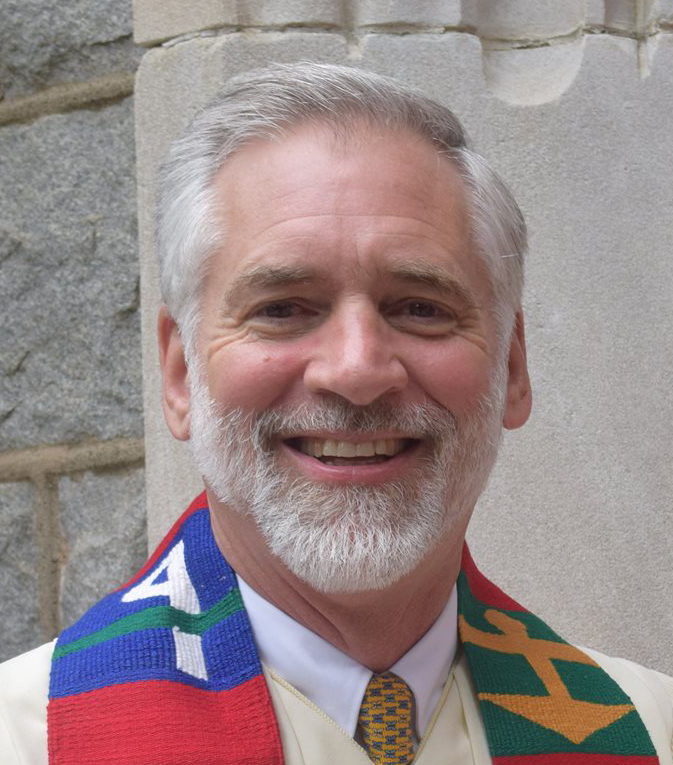By Jeff Brumley
Think Catholics are pumped about Pope Francis’ U.S. visit this week? Turns out some Baptists are pretty excited, too.
And those who aren’t, probably should be for a number of reasons, said Curtis Freeman.
One reason is that Pope Francis I is the only Christian in the world who every other Christian and non-Christian recognizes, said Freeman, director of the Baptist House of Studies at Duke University.
“He is the only Christian who can speak for all Christians in the world,” Freeman said. “We have no Baptist, no Protestant, like him — we are all so fragmented.”

Baptists should value the pope because “sometimes we need a single voice” to address issues like the environment, forgiveness in marriage and the economy, he said.
That’s not to discount the important role played by other Christian leaders in their traditions and in society, Freeman said. But it doesn’t have the same impact as a papal decree or gesture.
“If … Suzii Paynter sends out a press release, that’s good. But when the pope speaks, the world listens,” Freeman said.
Of course, that doesn’t mean Francis or other popes have spoken for worldwide Christianity in a binding or authoritative way, Freeman added. And he conceded there are many who reject the validity of the papacy and even of Catholicism.
“It’s OK if you want to reject that,” he said. “But ask yourself this: when you speak, is the world listening at all?”
Missionally minded Baptists and other Protestants should also take a strong interest in Francis’ visit — particularly in the places he chooses to visit.
“CBF folks are always asking, ‘Where is God at work in the world?’” Freeman said. “If you pay attention to Francis, he will tell you.”
He noted that two of Francis’ planned stops include the White House and a prison.
“He’s kind of a prophetic figure who says, ‘Here is where Christ is at work — it’s among these children and in these prisons but also in the Oval Office,” he said.
Freeman said he knows he isn’t alone in this attitude toward Francis. He recalled attending a Wednesday night church supper held shortly after the pontiff’s election in 2013. He spotted another member wearing a T-shirt expressing the wearer’s love of Francis.
“Ours is a church interested in social justice but I was not expecting to see someone at a Baptist Wednesday night church supper wearing a Francis shirt,” Freeman said.
‘Looking for some surprises’
Seeing those images may help Americans witness a model of dialogue that rises above the heated rhetoric currently defining U.S. politics and religion, said Steven Harmon, author of Towards Baptist Catholicity: Essays on Tradition and the Baptist Vision.
“He has been able to speak beyond the traditional American polarities,” said Harmon, a visiting associate professor of historical theology at Gardner-Webb University School of Divinity.
“In America we try to fit that into a progressive-conservative polarity,” Harmon said. “Instead of falling into those ways of defining the connection between faith and politics, it will be helpful to see how he can help us transcend that.”

Francis has also been intentional about ecumenical openness and affirming the validity of other forms of Christianity, Harmon said. He said it wouldn’t surprise him if the U.S. visit sparks some of those kinds of conversations, including among ethnic minority groups.
The pope has forged strong relationships with evangelicals in Latin America — including among groups that have historically been critical of, and even hostile toward, the Vatican, Harmon said.
“Latin American Baptists have been much more receptive of Baptist-Catholic ecumenical dialogue,” he said.
Harmon urged Americans to pay attention to the pope’s actions while in the U.S., not just his words.
“This is a pope for whom symbolic gestures accomplish much,” Harmon said. “I am looking for some surprises.”
‘It’s the prophetic side’
Francis’ visit will also be a shot in the arm to ministers and others whose concerns are social justice in America, said Rodney Kennedy, a Baptist known for his embrace of ancient liturgical practices.
“He’s coming into the lion’s den to speak a message of social justice in a nation consumed with consumerism and materialism,” said Kennedy, lead pastor of First Baptist Church in Dayton, Ohio.
Francis’ visit, particularly to the economically challenged areas on his itinerary, will serve as a boost in the arm to others who share those values in ministry, Kennedy said.
“His critique is important to all of us who minister to the poor and the oppressed,” he said.

Kennedy said it will be unusual for people like him to see so much attention being given to a Christian who cares so much about serving the least of these.
“Usually, the big Christian voices are not on our side” in a nation where “the social gospel gets treated in such dismal ways,” he said.
Kennedy said he’s less interested in Francis’ visit because of the liturgical practices of Catholicism.
“For me it’s the prophetic side,” he said.
“He is getting to the core claims of the gospel and he is doing it in such powerful ways that I am encouraged,” Kennedy said.
